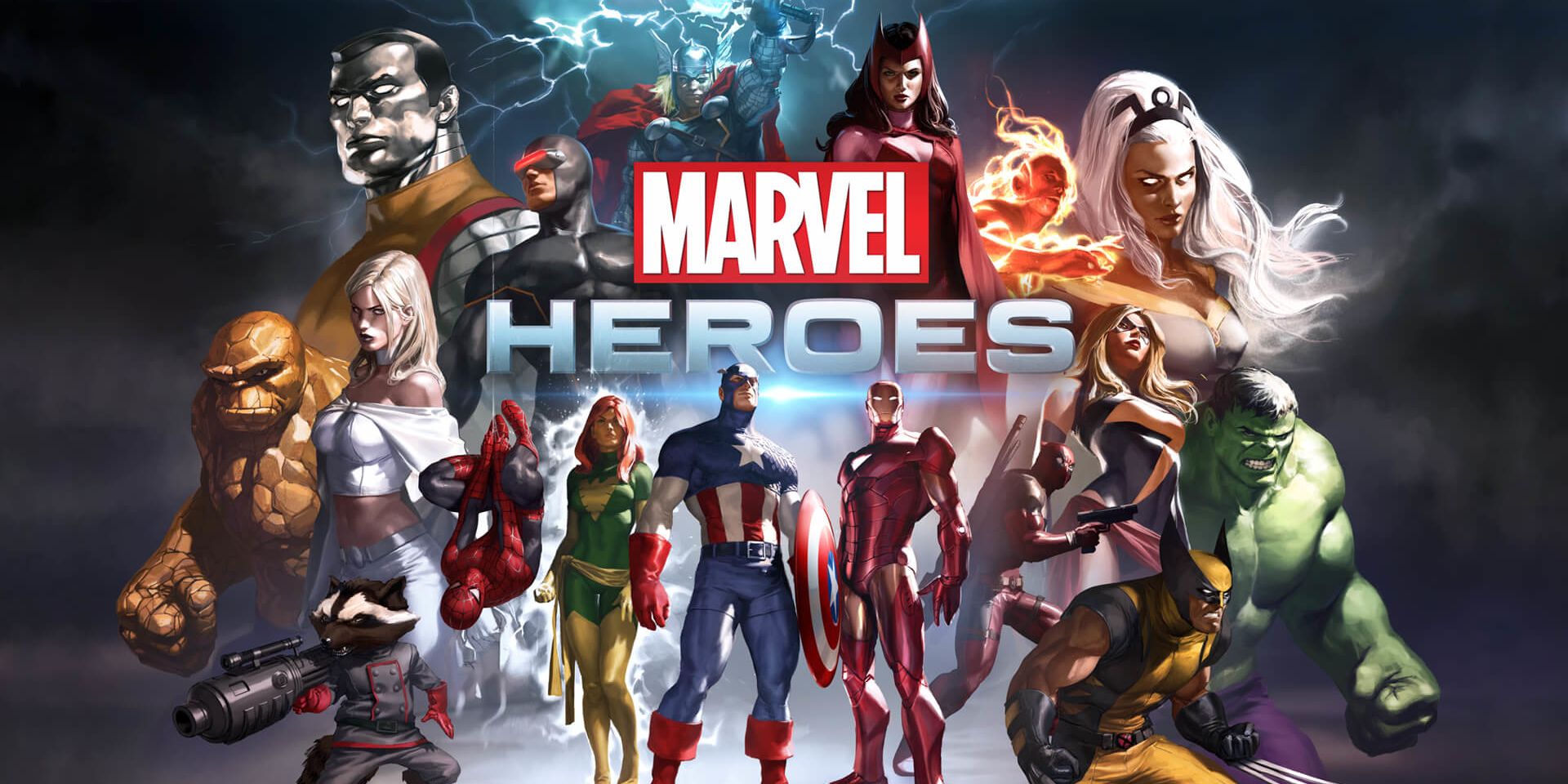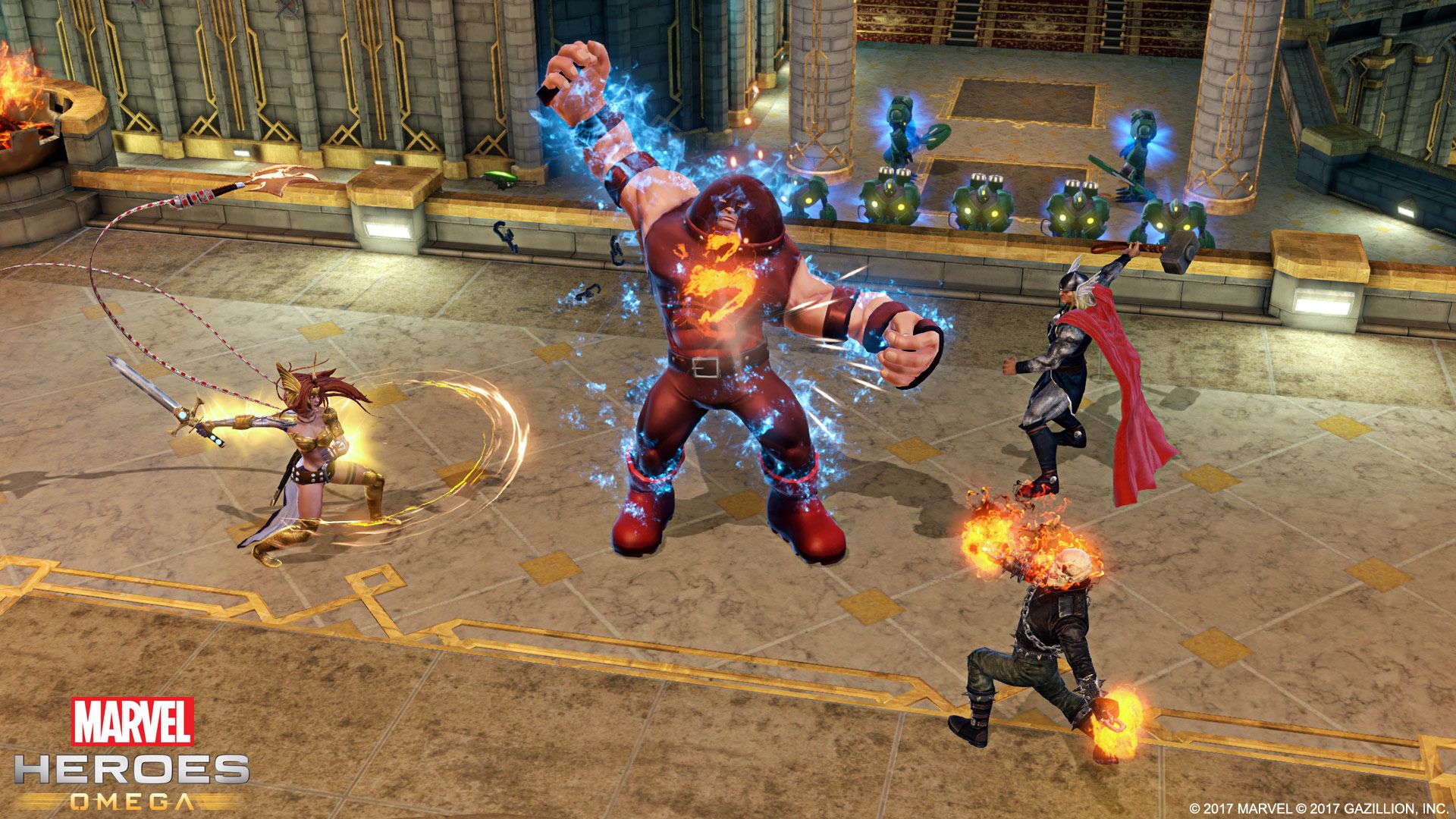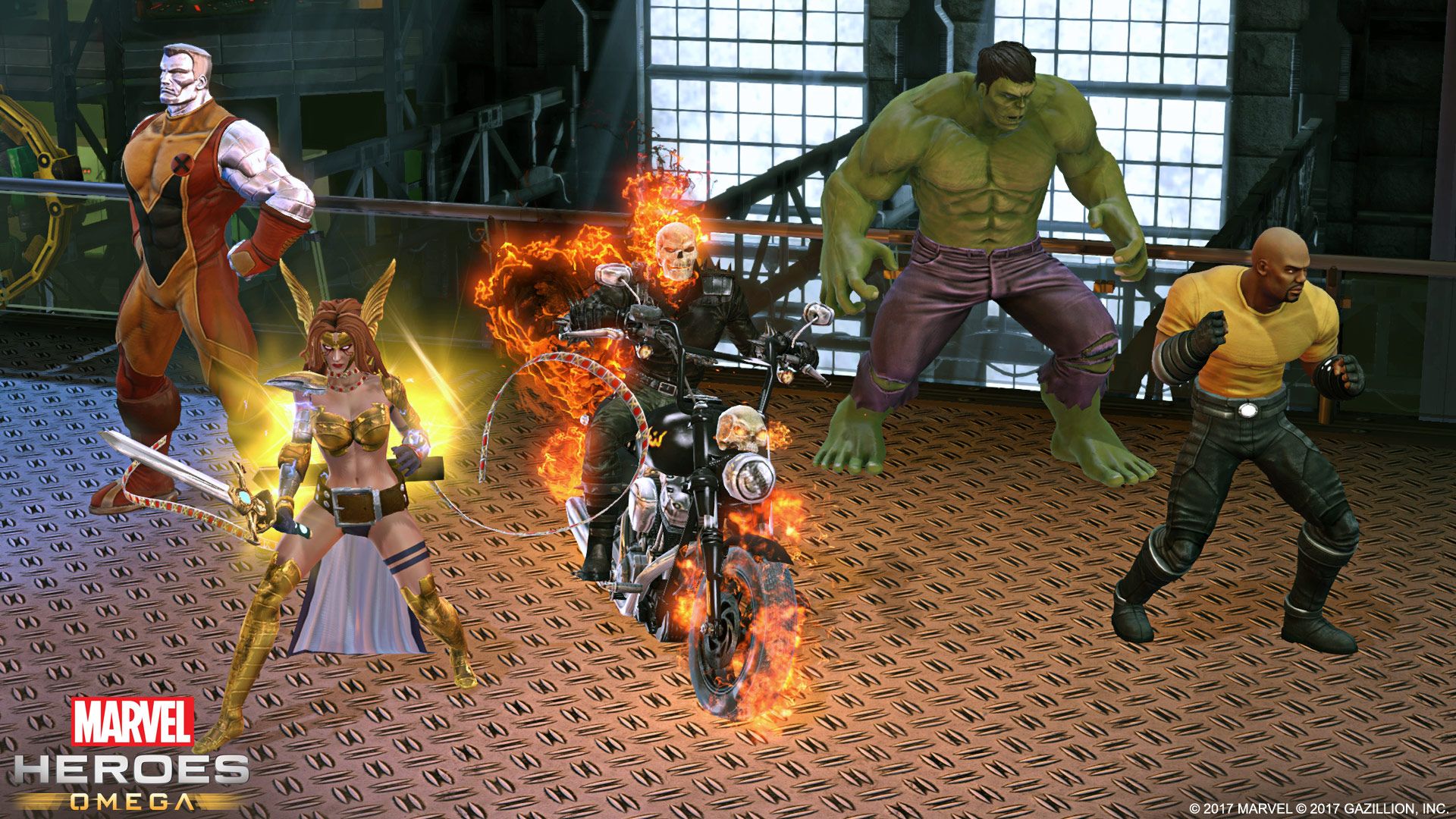Marvel Heroes Omega, Gazillion Entertainment’s free-to-play Marvel Comics-themed massively-multiplayer online game in the same vein as Diablo, finally shut down yesterday after two wild weeks that saw the company unexpectedly change the date of the game’s closure (service was first slated to end on Dec. 31), lay off a good chunk of its staff the day before Thanksgiving and finally evaporate into the ether with little more than a Twitter post as a grave marker.
The implosion of Marvel Heroes also took Gazillion with it, leaving many players who had just spent real money on in-game cosmetics and items unable to secure a refund. That’s saying nothing of the numerous developers who suddenly, and perhaps at the worst possible time of the year, lost their jobs. Suffice to say, there’s a lot of bitter feelings swirling around the Marvel Heroes title, which is shame because the game was one of the few pieces of non-comics media in which the full potential of Marvel’s roster could be felt.
RELATED: Disney Shutters Marvel Heroes MMO
Marvel Heroes had problems – a lot of problems. There’s no sweeping that under the rug. The game’s premise, an always-online world where your favorite Marvel Comics characters can run around, side by side, thwarting evil and blasting iconic foes into the dirt, has evergreen potential. Unfortunately, the game was mismanaged from the start, a hump it was never able to overcome and that was exacerbated by the profoundly flawed Omega System implemented towards its end.
Still, there’s no denying that, in a world where Marvel superhero movies and television shows are ruled by a complicated cloud of licensing agreements and cinematic universe continuity mandates that have splintered the company’s hero roster, Marvel Heroes was unique, one of the few places, aside from the comics, where all of Marvel’s heroes, Avengers and mutants alike, could stand together on an even playing field. The fact that such an experience is gone forever should be massively disappointing for comic book fans.
For a little perspective, here’s a quick (and incomplete) rundown of the kinds of deals that have fractured the Marvel Comics universe in both film and television: Disney owns the rights to the Avengers. Fox owns rights to X-Men and most mutants. Sony has Spider-Man and most of his ilk, Venom included. Universal has the rights to a solo Hulk movie, which is why the green guy is never far from another Avenger in the Marvel Cinematic Universe. Netflix makes the Defenders shows for Marvel, and references MCU events but only in passing. ABC is owned by Disney, so Agents of S.H.I.E.L.D. is one of the few shows that ties right into the MCU. Hulu’s Runaways looks to be telling its own story, though it may get into the history of mutants with Molly’s arc. Fox’s The Gifted seems to take liberties with the company’s own movie canon, but is nonetheless unafraid to directly address the hardships mutants face in the “Sentinel” arc. Legion is on its own bizarre, but beautiful, island over at FX.
The various studios and networks above have been able to carve out unique, often entertaining stories without the aid of the full Marvel Comics roster -- company likes Disney and Fox have thousands of characters to work with between them, after all -- but the joy of a Marvel comic book is the lack of compromise, the promise that anyone -- absolutely anyone -- could be around the next corner. That's a feeling Marvel Heroes captured with gusto.
Page 2: [valnet-url-page page=2 paginated=0 text='Where Did Marvel Heroes Shine Brightest?']
Not every Marvel Comics character was playable -- over 60 were playable when the game closed. Many characters were relegated to smaller positions as sidekicks, quest givers, bosses or mere flavor text delivery vehicles, but the fact that so many heroes from Marvel’s expansive timeline were present (in a story written by Brian Michael Bendis that all but necessitated the game’s developers get as crazy with multiverse cameos as possible) was a breath of fresh air.
The game’s team-up system, which allowed for players to call in a nonplayable sidekick to aid them in combat, allowed for a whole host of weird interactions between characters that will likely never interact in any live-action movie or TV show, ever. Try to imagine the insane licensing deals that would need to be penned for Brood Wolverine to fight beside Lady Loki while your pet Old Lace runs around off to the side. Just reading that would make even Kevin Feige break into a cold sweat.
None of this is to say that Marvel is completely out of the video game business. There are still a multitude of games that bring together notable Marvel Comics heroes and villains, but much of what’s easily accessible these days are mobile games, like the recently announced Marvel Strike Force. There’s nothing wrong with a good phone game now and again, but the experience pales in comparison to inhabiting a character as they traipse through some of Marvel’s most notable locales, from the dinosaur-infested Savage Lands to a heavily-fortified Latveria swarming with Doombots. That each character also brought their own unique skillset to the fight -- Captain Marvel was a bruiser who could do damage up close and at range, while Doctor Doom filled the screen with deadly pet robots -- added a sense of immersion that simply can’t be replicated in a match-three game or light strategy RPG.
RELATED: Marvel Heroes MMO is Now Officially Closed on All Platforms
Despite all its flaws, Marvel Heroes worked for casual and veteran comic book fans alike. A steady stream of characters and costumes inspired by new comics, movies and television series allowed Gazillion to explore both deep cuts and the flavor of the week. The game’s world chat often read like a particularly feisty overheard comic shop conversation, with different players debating the merits of various character arcs and storylines throughout the years.
In this way, Marvel Heroes acted as a sort of refuge for lapsed Marvel fans who just couldn’t get behind “current Marvel” -- a catchall phrase that could mean anything from the “Secret Empire” arc to “everything since the inclusion of a writer or artist I don’t particularly like.” Were all the conversations fruitful? Of course not, but they existed in a single, enthusiast-oriented space designed to harbor them. It was a place to talk about your favorite comic books while playing as your favorite comic books characters.
But seeded in the game were also references to nearly every conceivable aspect of Marvel Comics. It wasn’t uncommon to happen upon an item, NPC or quest reward that delivered just enough flavor text to pique a player’s interest, sending them down the rabbit hole of learning everything there is to know about Runaways, Squirrel Girl or She-Hulk’s law firm.
Marvel Heroes’ free-to-play model and forgiving system requirements made it one of the best pieces of underutilized marketing available to the company, and its console launch a mere four months ago only bolstered its visibility. Unfortunately, its seems Gazillion and Disney were never able to fully see eye-to-eye on this matter, and a mobile game is vastly cheaper to produce and maintain.
Marvel Heroes was a crazy ride from the beginning, full of bizarre decisions that marred an otherwise great game’s potential. In the wake of its closure, it’s important to remember that, for all its faults, there’s absolutely nothing else like it out there right now. Some will surely point to Champions Online, a more traditional MMO lacking licensed characters, as a potential replacement, but there will likely never be something quite like Marvel Heroes ever again, especially now that the MMO market is truly drying up in favor of new, emerging genres. Maybe that’s a good thing, but it’s probably not. There was a lot of good in Marvel Heroes, the product of a passionate development team that never really seemed to get the support it deserved, and it will be sorely missed.



